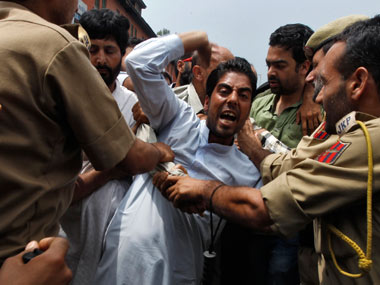Mohammad Aamir Khan encountered many lawyers during the 13 years he spent in prison in New Delhi and Uttar Pradesh. Many refused to take up his case because he was a Muslim accused of planting bombs in the national capital and neighbouring Ghaziabad. But Khan was one of the luckier ones. He finally found lawyers who managed to prove his innocence and secure his freedom. The government is now mulling a proposal to offer legal aid to other Muslims like Khan who, prima facie, have been wrongfully accused in terrorism cases. The Home Ministry officials will soon devise a mechanism to identify such cases. Khan, however, is not sure if the proposal will help others like him, or would have reduced the 13 years he spent behind bars. “If the government is genuinely seriously about the issue, it should constitute enquiry commission and ensure speedy time bound trials of such cases,” Khan told Firstpost. [caption id=“attachment_1048979” align=“alignright” width=“380”]  Representative Image. Reuters[/caption] The proposal for legal assistance for Muslim suspects comes in the heels of the Union Home Minister Sushil Kumar Shinde’s advocacy for fast track courts to expeditiously try terror cases. “The Ministry of Home Affairs strongly supports the proposal of special courts so that expeditious trial is possible….I am also of the view that arresting and keeping innocent persons in custody knowingly is indeed a serious offence and the government is committed to ensuring strong action against the officers responsible in all such cases. You have my assurance that this will happen,” said Shinde in March responding to a letter written by the Minority Affairs Minister K Rahman Khan. The proposal has evoked a mixed response from experts and activists. Advocate N D Pancholi who has defended many accused of terrorism including Khan, says that the proposal is not viable primarily because it is hard for the government counsels to win the trust of the accused in such cases. “I doubt if the accused will have confidence in government lawyer,” said Pancholi, pointing out that the law already provides for a court-appointed lawyer if the accused gives a submission that he or she cannot afford an advocate. He also points out that in many such cases, the accused is duped by the police-lawyer nexus which is active in many states. “Right after the person is arrested, cops become sympathetic towards the accused and suggest some lawyers. On many occasions, the accused goes by their recommendation and end up hiring a lawyer with poor legal knowledge. But by the time the accused realises this, much damage is done,” he says. Pancholi argues that the government should instead allow the accused to appoint a lawyer of his choice and pay the fee. South Asia director of the NGO Human Rights Watch Meenakshi Ganguly says strengthening legal assistance is indeed critical since the police take recourse to illegal means to secure testimony and evidence. “Too often we have seen that police, under pressure after terror attacks, caste the net wide and rely on torture to secure evidence. Defense counsels have been attacked, often by their colleagues. And thus legal aid is often inadequate in such cases. The principles of justice under constitution requires adequate defense,” said Ganguly. Over the past decade, there have been a series of cases in which Muslims were found wrongfully arrested raising questions about the way probe agencies went about investigating terror cases. In 2007, 70 Muslim youths were wrongly implicated in Andhra Pradesh for involvement in the Mecca Masjd blast case. The state government’s decision to compensate them is tantamount to an acknowledgment that they were innocent. Mumbai police’s anti- terrorism squad arrested nine Muslim men in 2006 Malegon bombing. They are out on bail ever since the National Investigation Agency (NIA), which took over the probe, named four alleged members of a right wing Hindu group in the case. In the latest such case, Bangalore police arrested journalist Muthi-ur-Rehman Siddiqui and DRDO scientist Aijaz Ahmed Mirza last August in connection with an alleged terror plot. The duo was released on bail when the NIA failed to press charges against them. The actual number of Muslims in jail on terror charges remains unknown. Given the absence of centralized data, earlier this month, the Union Home Ministry had asked all states to report the number of inmates. Manisha Sethi of Jamia Teachers Solidarity Association which released a report accusing the Delhi police special cell of framing Muslims in terror cases, said, “Legal aid is the constitutional right of every citizen, and as such offering of legal aid is no great favour or concession granted to the accused. It is in fact the duty of the state to ensure that no accused, no matter what the charge, remains bereft of a competent defence.”
Over the past decade, there have been a series of cases in which Muslims were found wrongfully arrested raising questions about the way probe agencies went about investigating terror cases.
Advertisement
End of Article


)

)
)
)
)
)
)
)
)



